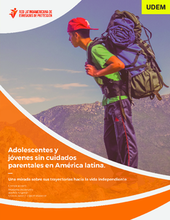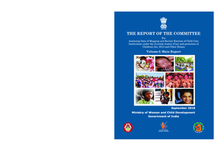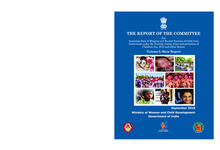Displaying 581 - 590 of 1460
This study from the Institutionalised Children: Explorations and Beyond Special Issue on Aftercare was conducted on 47 young adults who had grown up in various government and non-government child care institutions of New Delhi, India and the aftercare services they did or did not receive. The analysis revealed that the existing aftercare programmes are ill-equipped to prepare Out-of-Home Care (OHC) youth to transition from alternative care to independent living.
This study from the Institutionalised Children: Explorations and Beyond Special Issue on Aftercare describes the mental health outcomes and transition experiences of a group of young adults who are currently transitioning (aftercare) or have already transitioned (alumni) out of a residential care organisation for orphaned and separated children (OSC) in New Delhi, India.
This article from the Institutionalised Children Explorations and Beyond Special Issue on Aftercare explores the outcomes for young people who have transitioned out of alternative care and into independent living in Sri Lanka and the need for policy changes to better meet their needs.
This second volume of Promoting and Protecting the Rights of Children: A Formative Evaluation of UNICEF’s Child Protection Programme in Cambodia includes the annexes referred to in the first volume.
El objetivo del libro es posicionar regionalmente la situación de los egresados del sistema de protección, demostrando que en los países de latinoamérica hay miles de adolescentes y jóvenes que viven en dispositivos alternativos de cuidado y deben enfrentarse a un egreso de forma abrupta y muchas veces, no planificada.
This article by Ellen Livingood in Volume 13, Issue 9 of Postings describes the ways in which Christian churches and faith communities are moving away from orphanage volunteering to supporting other forms of care for children.
This 10th issue of the Institutionalised Children Explorations and Beyond (ICEB) journal, released in September 2018, is a Special Focus issue on ‘Aftercare.’
This National Mapping Exercise covering all Child Care Institutions(CCIs)/Homes in the country, except 34 CCIs/Homes in Uttar Pradesh, sheds light on the functioning of CCIs/Homes across the country, in the context of the Juvenile Justice (Care and Protection of Children) Act, 2015. The findings of this report are expected to provide necessary guidance to all stakeholders regarding improvements required in policy formulation and implementation in future.
The objective of this evaluation was to provide evidence that can help strengthen performance and accountability with UNICEF’s work with the Royal Government of Cambodia and the myriad other authorities and organizations involved in child protection.
The present study report is based on data collected through the National Mapping Exercise in India covering all child care institutions (CCIs)/Homes except 34 CCIs/Homes in Uttar Pradesh. The details of scenario captured by these statistics are expected to provide necessary guidance to all stakeholders regarding improvements required in policy formulation and implementation in future.







